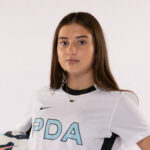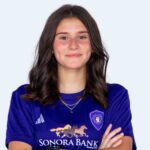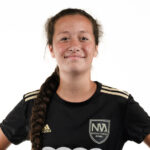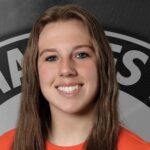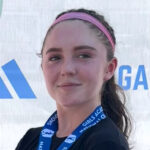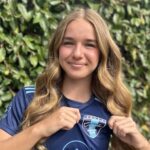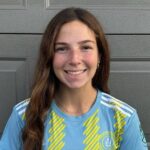PSW Q&A: D.C. United GM Dave Kasper on the present and future of United’s academy (Part One)
By Charles Boehm
Home-grown player signings and bigger, better youth academy programs have become regular news items around Major League Soccer. Most, if not all, of the league’s clubs are increasingly eager to find talent in their own backyards, for reasons of competition as well as community relations, and the trend is growing steadily – so much so that it’s easy to forget that youth development initiatives were a rarity just a few years ago.
D.C. United can justifiably claim to have been a forerunner in this department, with a well-established youth academy which has produced a long list of NCAA Division I standouts and – most importantly – four members of D.C.’s 2011 senior squad. Last week United general manager Dave Kasper was kind enough to sit down with Potomac Soccer Wire for a lengthy, wide-ranging conversation on the topic – so much so that we’ve split the Q&A into two parts, with part two coming next week.
Read on to hear Kasper’s thoughts on the D.C. academy’s successes to date, what lies ahead, and why this weekend’s visit from Ajax Amsterdam is more than just a money-spinning international friendly.
PSW: You accompanied D.C. United’s Under-16 team to Amsterdam for the Aegon Future Cup youth tournament last month, and stayed for an extra couple of days, right?
DK: I spent a couple of days meeting with different people at Ajax, just learning what the club is all about and how they do things. It was good.
It was a chance to meet people both on the commercial side and on the soccer side, on the first team side, on the youth side, on the commercial side. So it’s something we had been planning for a couple weeks, and they’re obviously coming here [for an international friendly against United this weekend], so we’ll continue to have conversations with them, share some ideas. We’d like to go to the [Aegon Future Cup] every year, it’s a nice little tournament. We’d like to collaborate on a lot of things.
PSW: This year United’s qualified for Aegon Future Cup via SUM Cup, MLS’ annual academy competition. Is it something that D.C. could be involved in on a regular basis?
DK: It’s quite possible, yes. It’s something that we would like to do.
PSW: Everyone talks about the Ajax system in glowing terms. What was your firsthand perspective?
DK: It’s great. When you meet anyone that’s part of the club, when you talk to fans of the club, they’re very proud of their youth development system. They’re very proud and they look forward to young players moving into the first team. It’s very important to them. Ajax has got tons of players playing in Europe who’ve moved on to big clubs – in their stadium they have a wall of players who’ve played 100 games for their club – and there’s some great players not on that wall – but the players on that wall, it’s just amazing, the talent that that club has produced. And there’s a reason why. They have a real structure starting with their U-12s all the way up into their first team.
How do they take a U-12 player through the course of the year and make that player better? How do they take a U-13 player through the course of the year and make that player better? They have a real curriculum for teaching the players. They obviously have really good facilities, which is really important. But they have a real plan in place and they challenge the player: there’s younger players who may move up, who may move back down, depending on where they’re at over the course of the year. So it’s very well organized. It was a great experience to be part of.
PSW: Ajax won the Dutch Eredivisie title this season, for the first time in seven years. I understand there’s been some frustration around the senior team during that time, with Ajax having spent a good deal of money to buy players from outside their system and not meeting expectations. Some view their style as overly rigid.
DK: Listen, I think they’ll always play a 4-3-3 [formation], that’s their brand. Johan Cruyff, who may be coming back into [a role at] the club, took that to Barcelona, and Barcelona is the best football club in the world, bar none. He’s had a big influence on Barcelona. So it works, their system of developing players works. You don’t have to play a 4-3-3 to be successful, but the system of developing players in a 4-3-3 and the curriculum, the methodology that Ajax represents, it’s terrific.
PSW: Is that a methodology that you could implement here at United?
DK: It’s possible. We always want to get better. We’ve started our academy, the academy has produced some great results, but we’re always striving for ways to improve ourselves.
It seems like it would be a challenge to implement that blueprint, that type of tactical structure over here in the U.S.
PSW: It seems like it would be a challenge to implement that blueprint, that type of tactical structure over here in the U.S.
DK: It’s really about the philosophy. For us, it’s about developing a philosophy from the first team all the way down through our youth teams in how we want to play, which is attacking-oriented, we want to play high-pressure, play in the other team’s end, play technical football, develop players who are creative, who are thinkers and who have great technical ability. That’s what we want to develop. That’s the philosophy of our academy.
PSW: Could you gauge where you’re at with that process?
DK: When I sat and watched our academy stacked up to the likes of Bayern Munich and Ajax and Anderlecht, we’re a little ways behind, and I think in part because they’re in a football culture that’s 24/7, where everyone’s talking about football and they’re ingrained in that culture. They have their players at least 10 months a year, four, five, six or seven days a week depending on the age group. And that’s something that we continue to look at as well: how do we, instead of maybe being a seven, eight-month a year program, how do we become a 10-, 11-month a year program?
PSW: Three days a week is the norm for United’s academy, right?
DK: We are training three days a week and playing two games on the weekend, during the academy season. So when you compare, those clubs have their players more throughout the year, so they’re training more, and training is very important when developing a player, the amount of time a player is putting into training both individually and as a team. And I believe those are reasons why, when we go to some of these international tournaments, we don’t get the results. [But] again, we’re not about results, we’re about developing players. We’re about developing players who will be better college players, who’ll be better soccer players and develop players, obviously, for our first team. That’s the measuring stick for us.
PSW: What are some of the specific areas where U.S. youth players are behind their overseas counterparts?
DK: Players individually were a little cleaner on the ball, technically a little bit better. Tactically, a little smarter, a little further ahead in terms of how to defend as a team, how to attack as a team, how to pressure in various parts of the field, how to organize a counterattack.
PSW: Various U.S. coaches have told me that with European and South American youth teams, you can already see the professionalism at that early age, where maybe U.S. players haven’t gotten exposed to it yet.
DK: Yes, I think that’s part of it. Again, these clubs have their players longer, but they’re also starting the players younger with their academy. That’s something we’ll strive to do down the line, having teams or some sort of training that’s established at a younger age group so that when a kid comes to us in the Under-16 age group and is playing in the national academy, they’re a little bit more prepared. So I think that’s a challenge for all of us, for the youth soccer community: how do we raise the bar? How do we make better soccer players? That’s a challenge all of us have in youth soccer.
Anderlecht is a team I was very impressed with [at Aegon Future Cup]. Sure, those kids were in a more structured program at a much younger age group. It’s not like they got these kids at 15 years old – it started with them in their youth teams. That’s another reason why they’re, quote ‘further ahead’ – and it’s not that we’re that far behind. The gap isn’t huge, it’s a small gap. But we have to do things and take measures to narrow that gap, because we’re right there. And athletically, we’re as good, if not better. Our mentality’s very good. But how do we get better technically? How do we get better tactically? Those are areas we still need to strive to improve in.
PSW: Expanding the United academy to younger age groups probably takes a significant investment.
DK: It’s an investment, it’s a matter of facilities. I think as we move into a stadium one day, as we get maybe a bigger training complex where we have more fields, then we can start to take on more youth teams.
PSW: Something like what FC Dallas and the Colorado Rapids have at Pizza Hut Park and Dick’s Sporting Goods Park?
DK: Yes. So you have teams all the way down to U-12, for example.
Will your youth academy have a residential component in the near future?
DK: It’s certainly a long-term goal. I think we’re a ways away from that.
PSW: Years? Decades?
DK: I can’t tell you – let’s get our facility first.
*Part II of PSW’s Q&A with Kasper will appear next week.


